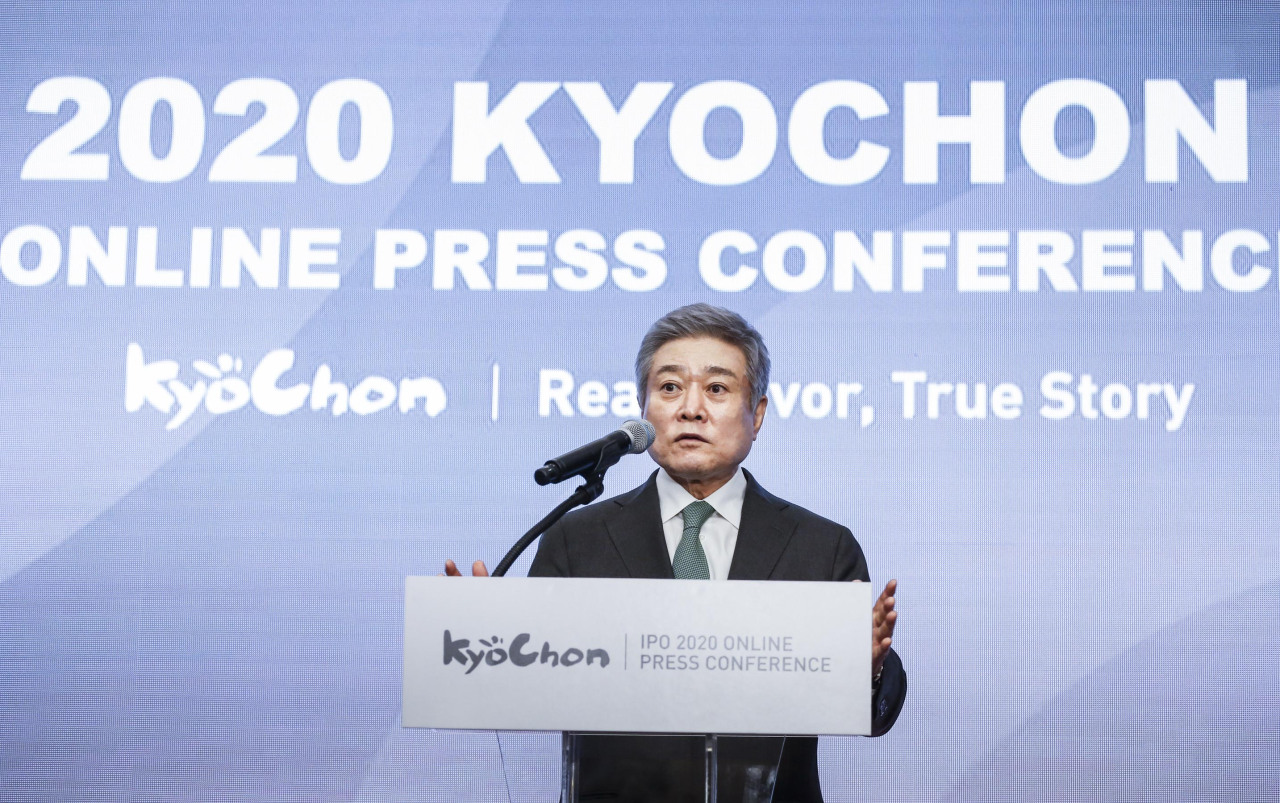 |
Kyochon F&B CEO and chairman So Jin-se speaks at an online briefing with reporters on Thursday. (Kyochon F&B) |
Kyochon F&B, South Korea’s largest fried chicken franchise, will make its market debut on the nation’s main bourse Kospi next month to raise as much as 71.34 billion won ($62.85 million), its chief executive officer said Thursday. Kyochon will be the first franchise firm to be directly listed on Kospi, he said.
“Being the first local franchise firm to list on Kospi means a lot to us. The IPO will set a meaningful milestone for Kyochon’s growth to become a global food company,” CEO and Chairman So Jin-se said.
The fried chicken franchise is offering around 5.8 million new common shares in the price range of 10,600-12,300 won, the officials said in an online press conference. Based on these share prices, the market capitalization of the firm after listing is anticipated to reach up to 309.9 billion won.
The exact share price will be set through two days of book building for institutional investors on Oct. 28-29. Retail subscriptions will be accepted Nov. 3-4, with Mirae Asset Daewoo serving as the underwriter of the IPO.
Founded in 1991, Kyochon has been leading the local franchise market, the company said.
The firm’s sales had soared by 16 percent on-year in the first half of this year to mark 215.6 billion won. The operating profit also came in at 15.3 billion won in the same period, it said.
Kyochon’s revenue is expected to rise at least 15 percent this year, CEO and President Hwang Hak-soo said, citing growing demand on delivery food under the lingering pandemic. The company has been expanding its franchises too, raising expectations for more revenue to come.
The capital raised through the IPO will be spent on expanding logistics centers and financing its products’ developments. It is also seeking to expand overseas entry.
Kyochon entered the US market in 2007, and expended its overseas business to China, Malaysia, Indonesia, the Philippines and Thailand. It has 37 franchises in six countries.
It plans to enter the Middle East, Taiwan, Turkey and Australia by the end of the year.
By Jie Ye-eun (
yeeun@heraldcorp.com)








